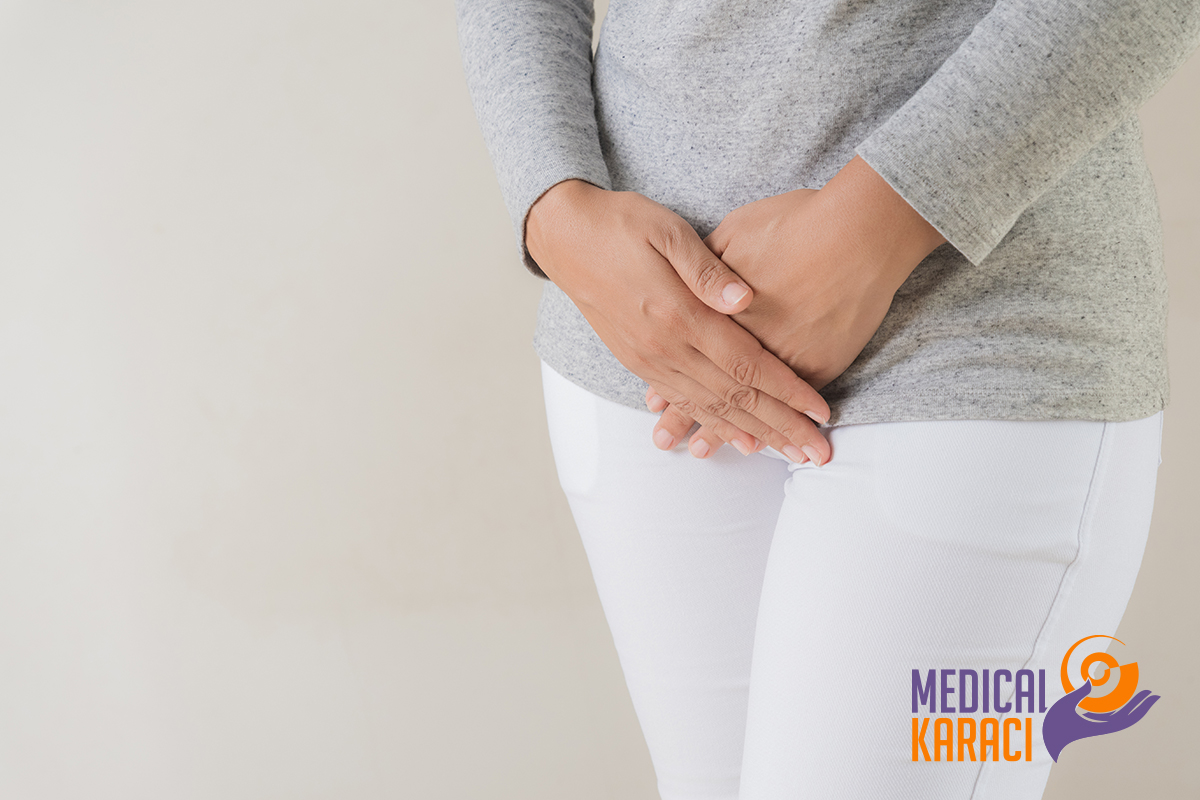Mayer-Rokitansky-Kuster-Hauser syndrome (MRKH syndrome) affects one in 4,500-5,000 women. It is a congenital anomaly characterized by the absence of the uterus and the proximal parts of the vagina as the external female genitalia are not affected. The condition is accompanied by disturbances of normal sexual function and infertility. Affected women do not have menstrual cycles due to the absence of a uterus but have normally functioning ovaries.
Classification
When only the reproductive organs are affected, the condition is classified as MRKH syndrome type 1.
Some women with MRKH syndrome may have abnormalities in other parts of the body - in these cases, the condition is classified as MRKH syndrome type 2. In this type, the kidneys may be abnormal in shape or position or one kidney may be underdeveloped.
Affected women may develop skeletal abnormalities, primarily of the vertebrae of the spine. Hearing problems or heart problems may develop.
Causes of the appearance of the anomaly
The etiology of MRKH syndrome is unknown. Alterations in several genes responsible for prenatal development have been found in women with this syndrome. It is not clear whether these changes are the cause of MRKH syndrome. Women with Mayer-Rokitansky-Kuster-Hauser syndrome have a normal female karyotype /46XX/. Reproductive abnormalities are due to incomplete development of the Müllerian duct. Normal Müllerian ducts are double embryonic tubes that are present in the organism during its embryonic development. During this development between 9 and 16 weeks of gestation, the female sex organs - fallopian tubes, uterus, vagina - are formed from them. It is not known what causes the abnormal development of the Müllerian duct in women affected by MRKH syndrome. The causes could lie in the environment as well as in the intake of medications or diseases during pregnancy. It is also unclear why some of the affected women have abnormalities in other parts of the body besides the reproductive system.
Certain organs and tissues in the human body, such as the kidneys, develop from the same embryonic tissue as the Müllerian duct, and it is suspected that problems during intrauterine development may also affect these organs.
Despite amenorrhoea, affected women have normal development of secondary sexual characteristics - breasts develop normally, also hair on the genitals and armpits. Sex hormones and libido are also within normal limits. However, due to the absence of a uterus and developed fallopian tubes, affected women are unable to bear a child. Many affected women also experience difficulty during sexual intercourse due to the shortening of the vagina. They may also experience pain during intercourse.
Most cases of MRKH syndrome occur in women with no family history of the disease.
Diagnosing
Usually, the syndrome is detected in the absence of menstrual periods at puberty. It can also be detected when looking for causes of reproductive problems in a woman. Diagnosis is made after identification of characteristic symptoms, detailed patient history, detailed clinical evaluation and specialized imaging studies such as transabdominal ultrasonography and nuclear magnetic resonance imaging.
In women with MRKH syndrome, FSH, LH and 17 beta-estradiol levels are normal as the ovaries function normally.
Treatment
The treatment of MRKH syndrome is directed at the specific symptoms that are individual in each affected woman. Treatment may require the coordinated efforts of a team of specialists. Depending on the age of the patient at the time of diagnosis, pediatricians or internists, gynecologists, nephrologists, endocrinologists, orthopedists, plastic surgeons, physical therapists, and psychiatrists may need to be involved in treatment.
Women with MRKH syndrome are encouraged to seek psychological help as this diagnosis can cause severe anxiety and great psychological distress.
Non-surgical and surgical methods of treatment
The treatment of vaginal aplasia consists in the creation of neovagina - the construction of a vagina in order to provide a normal sex life for affected women. This should be offered to women when they are emotionally mature and ready to begin sexual activity. Treatment can be non-surgical or surgical.
Non-surgical techniques are considered an appropriate initial approach. Vaginal dilators are specially designed plastic tubes that are used to enlarge or create a vagina. The most common method is known as the Frank dilation method. With this method, a doctor (and then the woman herself) applies a vaginal dilator that progressively stretches and expands the vagina. This daily procedure can last from six weeks to several months.
You may need plastic surgery to create an artificial vagina (vaginoplasty). There are many different surgical techniques that can be used. Women who undergo surgery to create an artificial vagina should have an active sex life or use vaginal dilators after surgery to increase the chance of success.
In vitro and surrogacy
Since women with MRKH syndrome do not have a functional uterus, they would not be able to carry and give birth to a child. However, affected women can have a child using in vitro fertilization of their own eggs and surrogate pregnancy. As MRKH syndrome is likely to be genetic in origin, there is a risk of passing the disease on to children and therefore any decision to conceive should be made after careful consultation with doctors and geneticists.
Transplantation of the uterus
In December 2017, a woman gave life to a baby girl after a uterus transplant from a cadaveric donor. The child was normal weight and was born weighing 2,550g. The uterus was removed in the caesarean section so that the woman would not have to deal with possible organ rejection later. More research needs to be done to reduce the risks of such a procedure, but this could be a new hope for many young families around the world.
Treatment of concomitant abnormalities
Women with MRKH syndrome who are missing one kidney (unilateral renal agenesis) may have increased susceptibility to urinary tract infections and/or kidney stones. Doctors should carefully monitor affected women for infection and prescribe therapy if necessary. Skeletal abnormalities may also require reconstructive surgery, physical therapy, and/or other medical monitoring depending on the specificity and severity of the bone deformities.
As scary as this diagnosis may sound for a young woman you need to understand that a diagnosis of MRKH syndrome is not a judgment. A disease can affect you as much as you allow it to affect you. At ZIC Medical Carragee, we can help improve your life with Meyer-Rokitansky-Kuster-Hauser syndrome.
For more information, we at Medical Karaj are at your service.
Call us on the following numbers "Medical Karaj": 0879 977 401 or 0879 977 402.
Also keep an eye on our constantly updated Facebook content.










